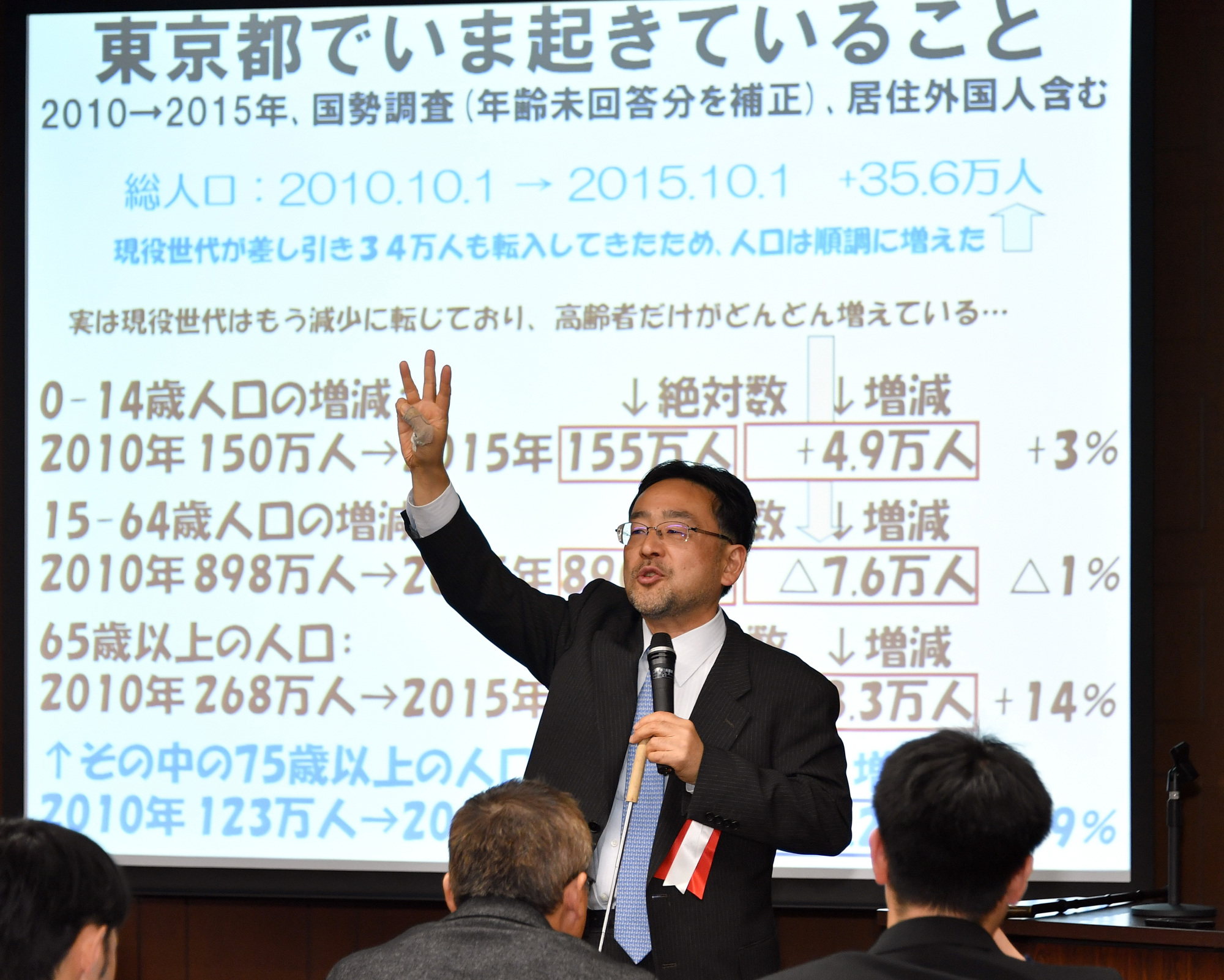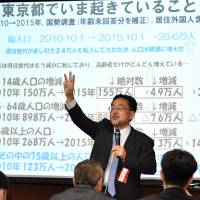Rural municipalities across Japan should capitalize on their natural resources to pursue sustainable lifestyles via adopting alternative ideas complementary to conventional capitalism and make active efforts to bring in young urbanites to rejuvenate their communities, renowned economist Kosuke Motani stressed during a recent forum in Tokyo.
Citing figures from a population census, the chief senior economist at the Japan Research Institute, Ltd. noted some rural municipalities described as "depopulated areas" have experienced milder increases in their elderly populations, compared to urban regions such as Tokyo. This demographic structure should be better utilized toward the revitalization of underpopulated areas, he stressed.
According to national census figures, Japan's over-75 population increased to 16.3 million, a 15 percent rise over a five-year period from 2010, while Tokyo saw a 19 percent increase to 1.47 million during the same period. On the other hand, Shimane Prefecture, where Motani said the term "depopulated" was first used, had just a 3 percent rise in those over 75 years old to 123,000 from 2010 to 2015.
"In Shimane Prefecture, the number of children has increased in nine of some 20 municipalities," he said. "Spending on welfare and medical care would generally decrease in a municipality that sees fewer numbers of elders and some municipalities have spent more money on child-rearing support."
Motani argued that efforts by rural municipalities to attract young people from outside their regions are a key to whether an area will revive or deteriorate. "Nobody can stop people from aging, but it's possible for municipalities to work on bringing back people who left their hometowns or attracting urbanites," he said.
To that end, the economist stressed rural communities should make full use of their rich resources, namely satoyama. The word originally referred to mountains, hills and woods adjacent to agricultural communities, but it has evolved to refer to a natural environment that remains stable because of usage and maintenance by area residents, according to Motani.
"It is generally thought that human involvement in the ecosystem leads to exhausting resources, which could end up in its destruction," he explained. "But regarding satoyama, despite human involvement, the ecological system is stable and it becomes home to more creatures."
Motani was invited to speak at the lecture on Feb. 13, part of a forum organized by The Japan Times to commemorate the January launch of the Satoyama Consortium that aims to help relevant parties promote their activities related to the field.
What the economist proposes is so-called satoyama capitalism that can be deemed as "a subsystem of the modern economy." Under conventional capitalism, anyone can exchange something using money and success is measured by the amount of money earned. "Money is a means of exchange, not a measure of scaling values" in satoyama capitalism, according to Motani.
"It is a type of capitalism that is more sustainable and resilient," he explained in his lecture. "While satoyama capitalists earn and spend cash, they make much of non-monetary convertible values, pursuing a better balance between dependence on money and other factors in their lives."
Satoyama capitalism — on which he co-authored a book published in 2013 — promotes circulation of resources, money and goodwill within a community through cashless exchanges such as self-sufficiency in water resources, food and fuel, bartering and paying it forward, according to Motani. "The bottom line of satoyama capitalism is to have sustainability through the cycle and reproduction of nature."
Motani reasoned that the benefit and advantage of practicing this alternative capitalism is that it creates leeway people can experience in their daily lives.
"What I have been saying is that people's lives will be much easier if they would secure even a portion of food through self-sufficiency, if they have somebody to barter goods with or if there is a community with its residents becoming accustomed to paying it forward," he stressed. "If that's the case, elders do not need to fully depend on their pensions."
This series introduces municipalities and local companies promoting the beauty and excellence of deep Japan.




















With your current subscription plan you can comment on stories. However, before writing your first comment, please create a display name in the Profile section of your subscriber account page.